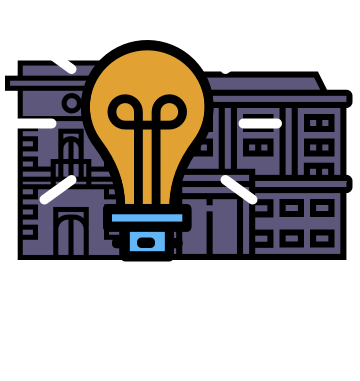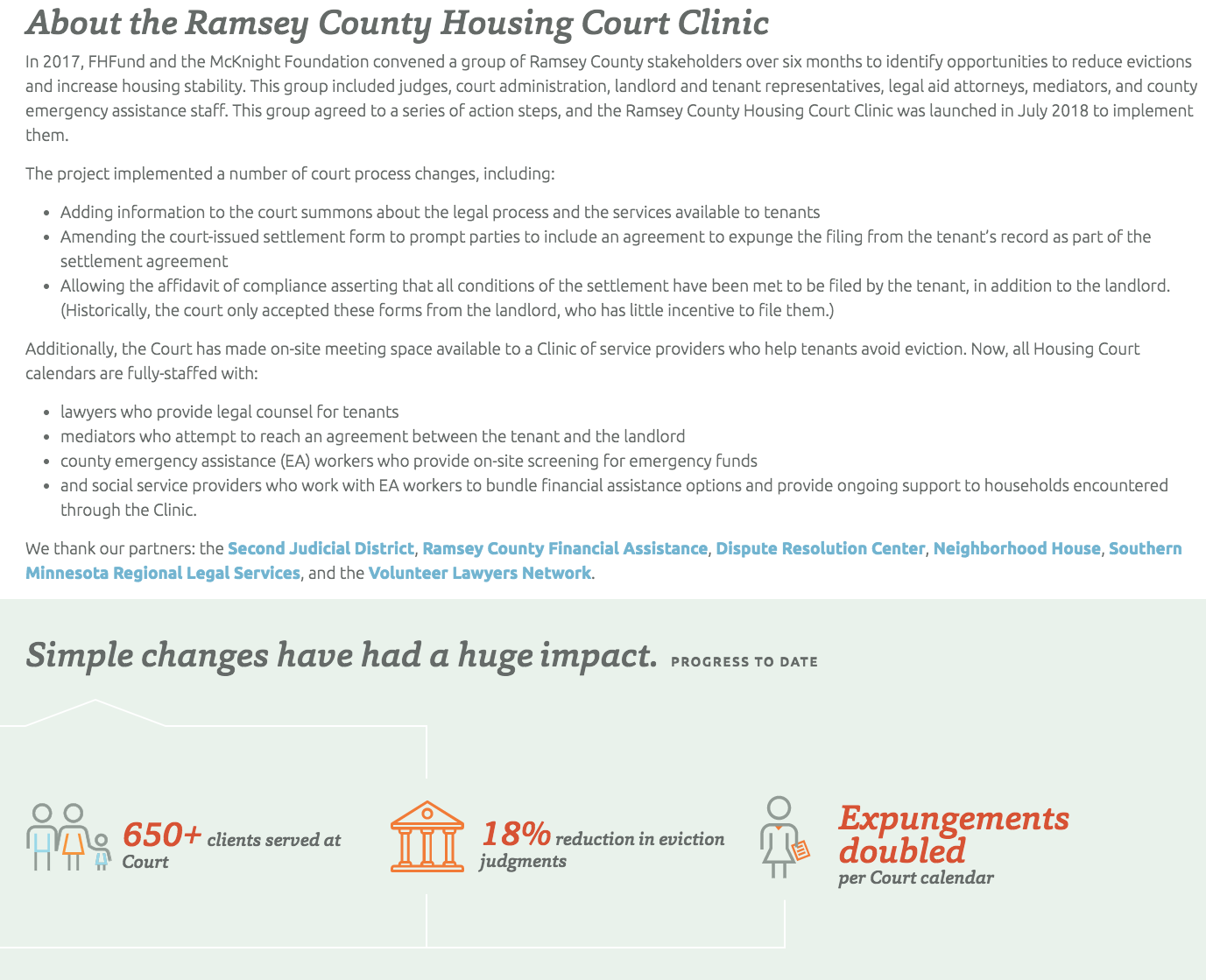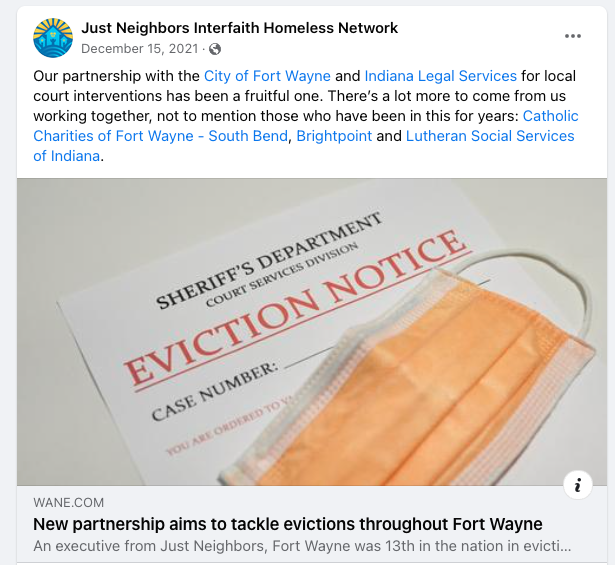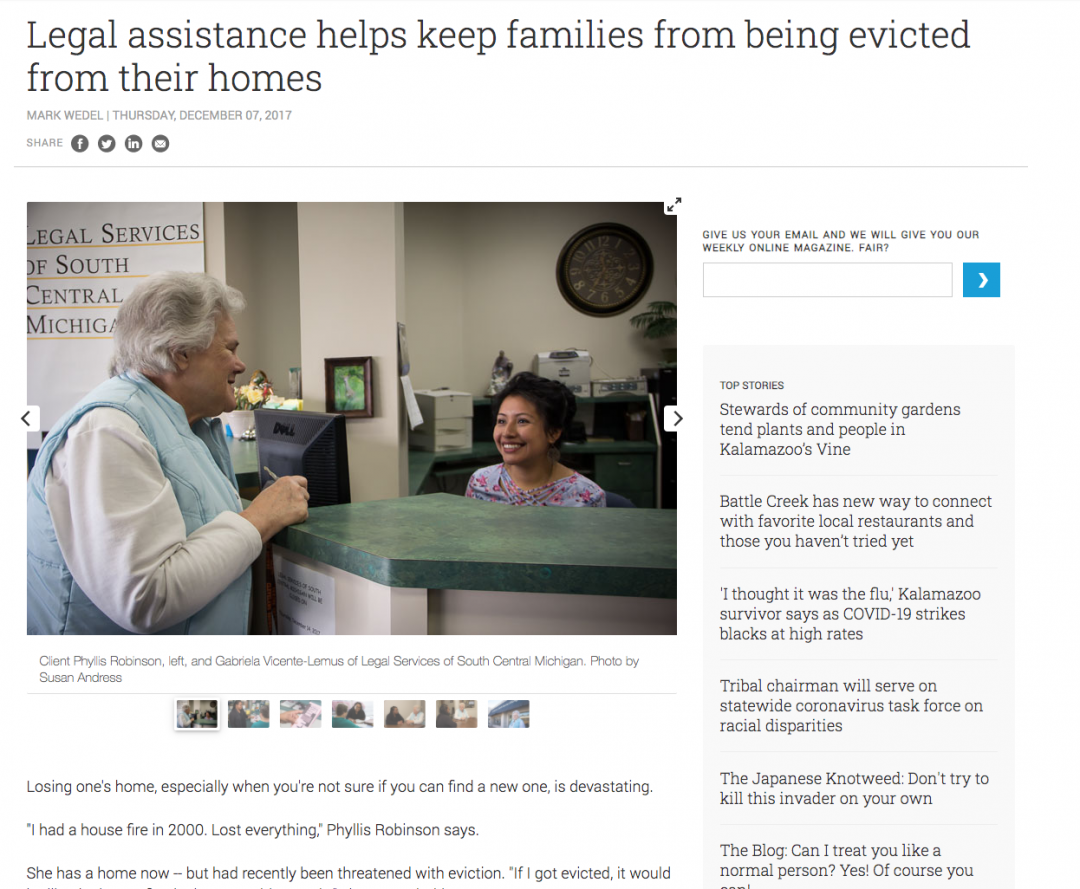Basic Information
Program Name
The Ramsey County Housing Court Clinic and associated neighborhood Crisis Clinic, (now expanding to other nearby counties in Minnesota)
Short Description
The Housing Court Clinic offers legal help, emergency funding, and court process changes to help tenants improve their chances of avoiding displacement when facing an eviction lawsuit.
It has co-located a one-stop group of holistic services into a cluster of rooms in the courthouse, just outside the housing court courtroom.
The Clinic program changed the court process around eviction to make tenants more aware of the legal process and available services; to improve the settlement process and outcomes; to encourage agreements that expunge eviction filings from tenants’ records; and to improve court services and spaces for lawyers, mediators, and other service providers.
The neighborhood-based, pre-court Crisis Clinic provides community outreach, legal help, funding, and dispute resolution guidance to families at risk of eviction.
Location
Ramsey County, Minnesota (home to Saint Paul); Hennepin County, Minnesota (home to Minneapolis) — and now expanding to Anoka and Dakota Counties
Duration
It launched in July 2018 in Ramsey County. In October 2019, it expanded to work in outreach before evictions are filed.
Funding
The Family Housing Fund and the McKnight Foundation brought the original stakeholder group together. This group helped to scope the problem and ideas for changes. Then the service providers who then arranged for the special clinic brought their own funding sources.
Size (number of beneficiaries)
Over 650 clients have been helped through the program, as of April 2020
Stakeholders
Who designed and set up the program?
A group of stakeholders from Ramsey County were convened by the Family Housing Fund and the McKnight Foundation. Together, this group of judges, court administration, landlord and tenant representatives, legal aid attorneys, mediators, and county emergency assistance staff — agreed to the Housing Court Clinic model.
Who runs and manages the program?
The program is run at the Ramsey County Court. It includes partners of
- Second Judicial District,
- Ramsey County Financial Assistance,
- Family Housing Fund,
- Dispute Resolution Center,
- Neighborhood House,
- Southern Minnesota Regional Legal Services, and the
- Volunteer Lawyers Network.
The Urban Institute has helped the Crisis Clinic group with technical and evaluation assistance.
Who funds the program?
The various partners bring their own resources and emergency funding sources.
Intended Beneficiaries: Who does the program target?
Tenants who are sued for eviction, and those at risk of eviction in the community
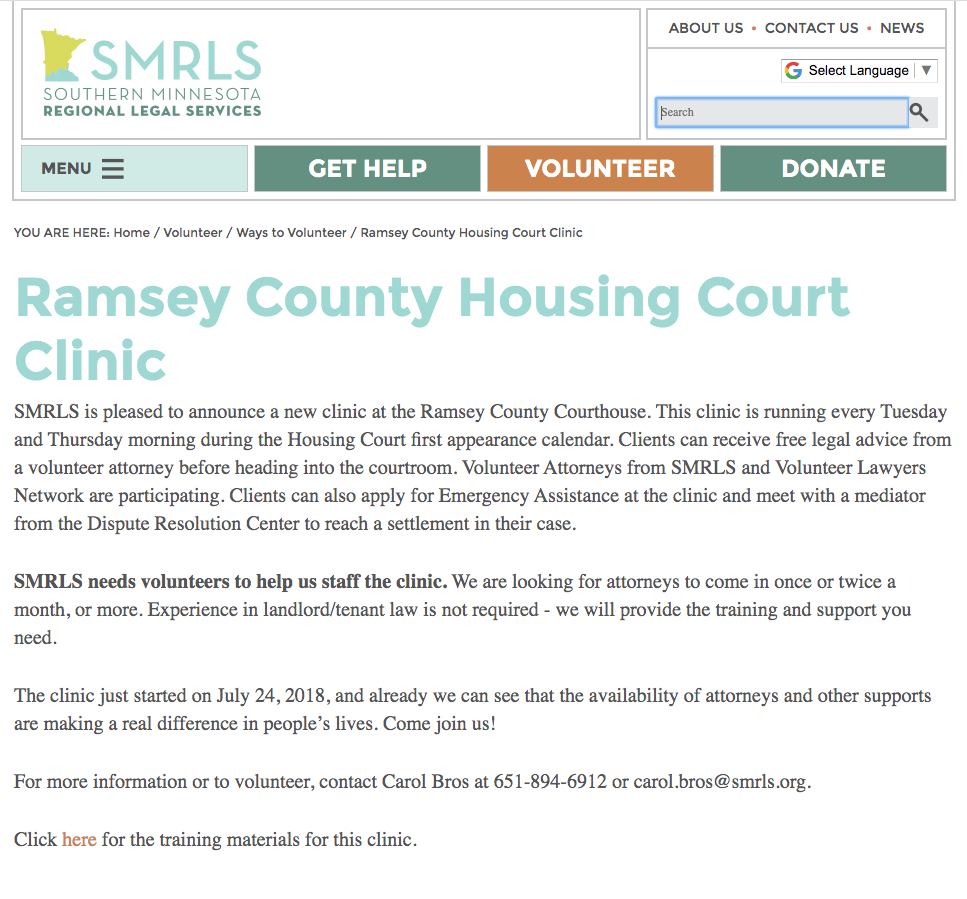
Program Details
How does the program work? What are the typical paths of action that the beneficiary + the service-provider take?
The clinic runs every Tuesday and Thursday morning during the Housing Court first appearance calendar.
When tenants arrive at court for an eviction hearing, they are greeted by the Clinic’s check-in table in the courtroom lobby. They are screened for possible services.
Representatives from the various involved groups (the court, volunteer lawyers, SMRLS legal aid group, Volunteer Lawyers Network, Dispute Resolution Center, Neighborhood House, and county emergency assistance fund) are on hand to provide services to the tenant.
Tenants can meet with a lawyer to get legal advice about their case, and mediation can be set up to come to an agreement with the landlord. Social service groups are on hand to help with emergency assistance and funding to help with nonpayment of rent.
::
In the Crisis Clinic preventative model, similar co-located legal and financial services are available at a local community center, the Neighborhood House. A tenant can meet with the case manager, legal aid representatives, mediators, and other community group funders to get a plan for how to avert escalations of problems with a landlord.
What assets can be shared for others to use?
The Clinic’s volunteer attorney application and training are all available at the SMRLS’s page on volunteer resources.
This includes a volunteer information/guide sheet.
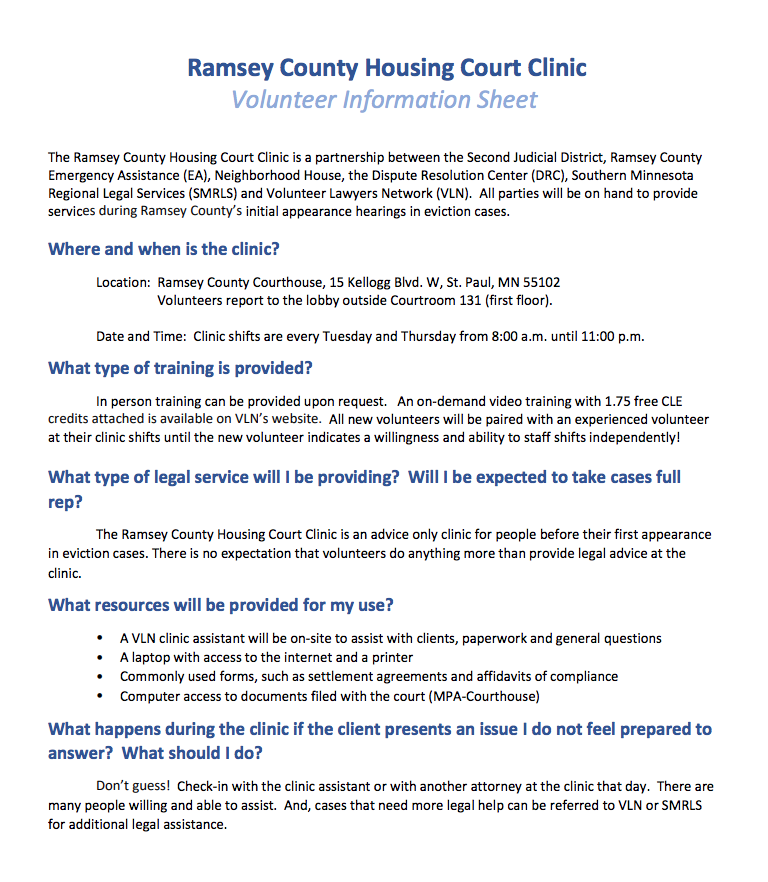
Evidence Base
What are the plans for monitoring and evaluation?
The group has tracked reductions in eviction judgments and numbers of settlements. Since July 2018, the housing court has seen some results, as reported by the Urban Institute:
- an 18% drop in eviction judgments,
- doubling of the number of eviction cases that are expunged from tenants’ records,
- a drop in cases that go to trial, of a 30% reduction in trials,
- a reduction in time spent by court in pretrial hearings, by one hour per week of court time
- an increase in settlements between tenants and landlords, and
- a drop in the proportion of eviction filings that result in judgments.
Have any evaluations been conducted so far?
The Urban Institute is researching the Crisis Clinic, to see if it is helping people reach services before an eviction filing.
Contact and Follow-Up Info
Program Website
The Family Housing Fund’s page on the program is at: https://www.fhfund.org/eviction-prevention/
The SMRLS legal aid group’s page: https://www.smrls.org/volunteer/ways-volunteer/ramsey-county-housing-court-clinic/#
Documentation + Links
There is a lengthy feature piece on the Urban Institute, on the program, called “A Head Start for Eviction Prevention: Reaching Families Before They’re in a Housing Crisis”
More readings from the Family Housing Fund:
- A Head Start for Eviction Prevention: Reaching Families Before They’re in a Housing Crisis (Urban Institute)
- Four Lessons from Minnesota Can Inform the Eviction Crisis Debate (Urban Institute via Housing Matters)
- Crisis Coordination and Eviction: Lessons from the Housing Court Clinic in Ramsey County, Minnesota (Urban Institute)
- Experts Forum: What’s the Best Way to Stem Evictions? (Minnesota Lawyer)
- How Can We Prevent Evictions? (McKnight Foundation)
- The Illusion of Choice: Evictions and Profit in North Minneapolis (Center for Urban and Regional Affairs)
Point of Contact for more information
People interested in possibly replicating the clinic, or to get more information — contact Carol Bros at SMRLS at carol.bros [at] smrls.org
Project partners can be reached at their websites, including SMRLS, Urban Institute and Family Housing Fund
